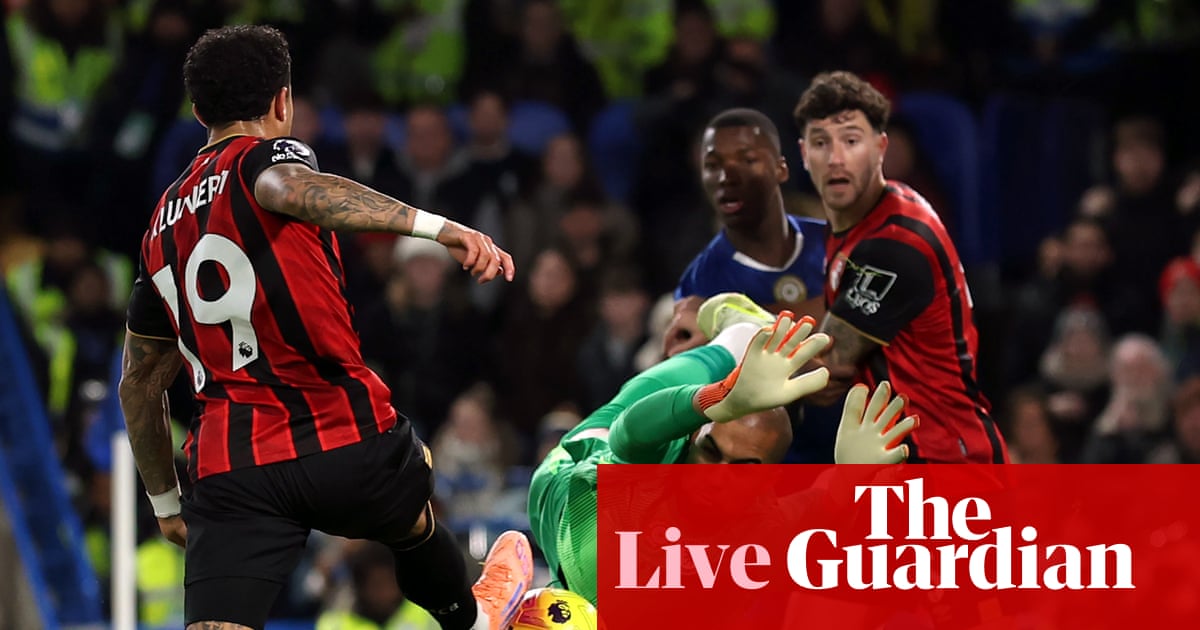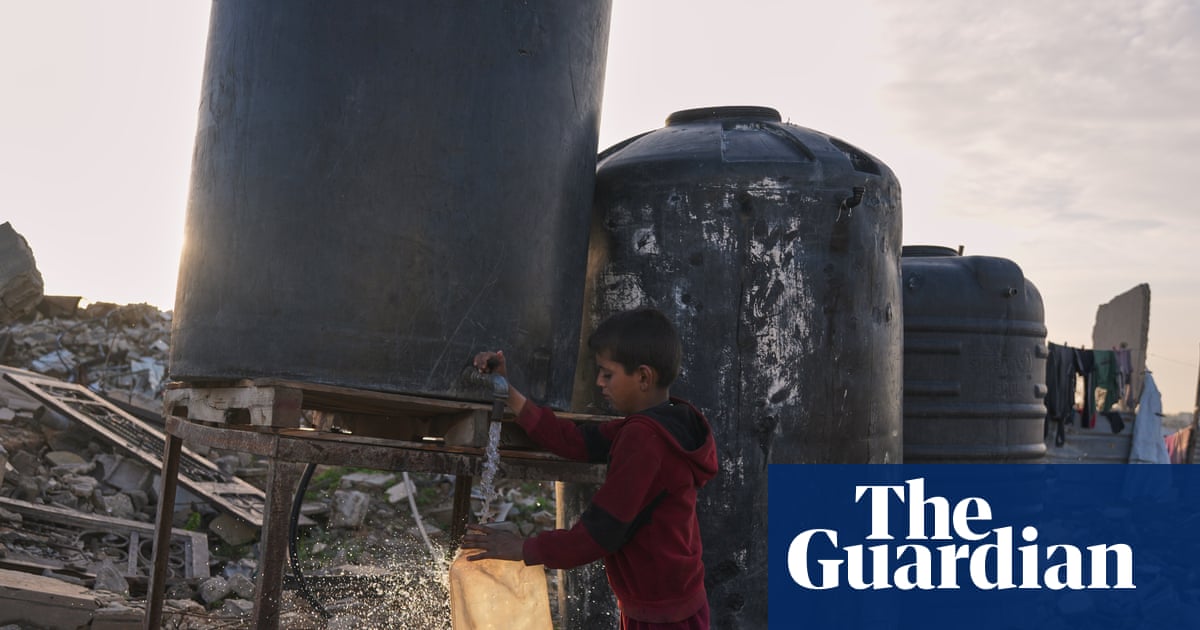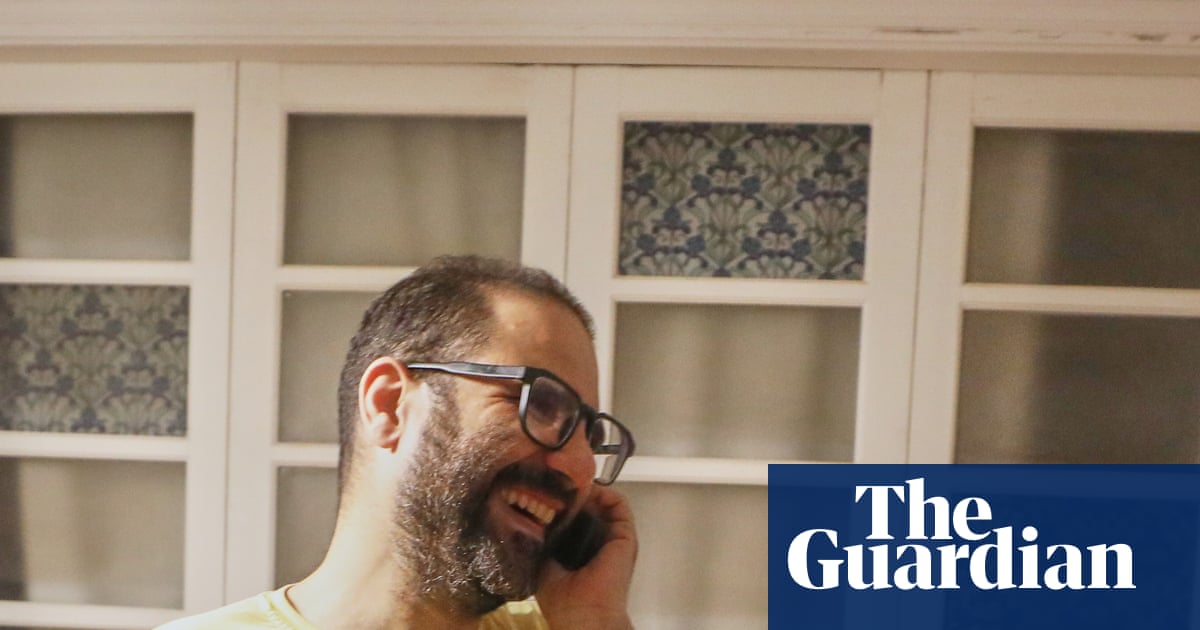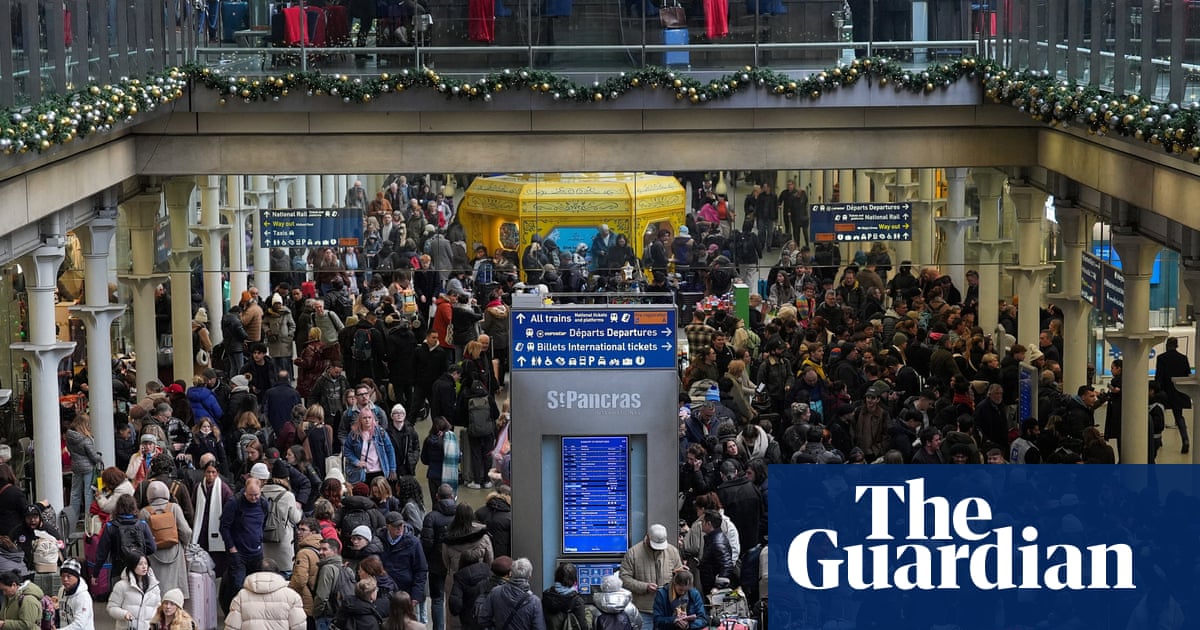Maccabi Tel Aviv supporters were banned from watching their game against Aston Villa after police intelligence concluded the biggest risk of violence came from extremist fans of the Israeli club.
The ban ignited an intense controversy and was criticised by the prime minister, as well as others claiming it was a surrender to antisemitism.
The police assessment led to the fixture on 6 November at Villa Park in Birmingham being classed as high risk. The intelligence and risk assessments that led to that conclusion and ban have not been made public.
But sources with knowledge of the details of the intelligence and risk assessments have told the Guardian that the Maccabi fans were considered likely to be the perpetrators of trouble.
According to sources, police intelligence said:
-
Scores of extreme Maccabi fans with a past history of violence and shouting “racist taunts” were expected to travel to the Birmingham game.
-
Dutch police told their British counterparts that the Maccabi fans had instigated trouble in Amsterdam at a game last year.
-
They had randomly picked Muslims in Amsterdam to attack. That led to reprisal violence with some Dutch Jews attacked.
-
A huge Dutch police effort, involving 5,000 officers across three days, was needed to quell the trouble.
-
A community impact assessment by West Midlands police recorded that some Jewish people wanted the Maccabi fans banned because of the trouble that might ensue if they attended.
-
Any trouble started by Maccabi fans attending the Birmingham game could lead to reprisals from local people and further trouble.
-
The process did not consider whether the ban on fans of the Israeli club could be criticised as antisemitic itself or surrendering to antisemitism.
The ban on Maccabi fans was made by Birmingham’s Safety Advisory Group. It was decided after an intelligence assessment was conducted by West Midlands police, shared with the national UK football policing unit.
The UK football policing unit is understood to have backed the conclusions reached by local police.
Last week, the prime minister, Keir Starmer, said: “This is the wrong decision. We will not tolerate antisemitism on our streets. The role of the police is to ensure all football fans can enjoy the game, without fear of violence or intimidation.”
A source with knowledge of the assessments said: “The biggest risk was always the extreme Maccabi fans who want to fight.”
The source accepted those making the assessments and decisions did not consider how the ban on Israeli fans could be seen when made public, with some claiming it was a surrender to antisemitism: “If you don’t know the detail and have not read the intelligence, you could conclude it was because the traveling fans were Jewish. That is just not the case.”
As there are no direct flights from Israel to Birmingham, Maccabi fans would probably have travelled first to London. Trouble was feared across the estimated three days Maccabi fans would be in the UK for the game: arriving in the UK, then on to Birmingham and attending the game itself before their return journey.
After the row erupted, the government said it would offer police extra resources to minimise the risk. But so severe was the risk that it is estimated specialist riot police would have had to be drafted in from around the country if the ban was reversed.
At least 1,500 to 2,000 riot officers would be needed with many brought in through mutual aid from the across the UK, at an estimated cost of £6m, though likely to be higher.
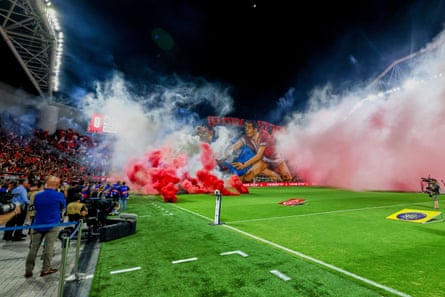
On Monday evening, Maccabi Tel Aviv announced they would not sell tickets for the Europa League match in Birmingham next month. Their allocation of tickets was expected to be about 2,400.
Critics of the ban point out that Maccabi Tel Aviv played in Greece last month without major incident.
Maccabi’s game on Sunday against their Tel Aviv rivals Hapoel was cancelled before kick-off after an outbreak of violence. Israeli police said their officers were injured with “smoke grenades and pyrotechnic devices” thrown on to the pitch. Maccabi blamed their rivals.
On Monday, in the Commons, the culture secretary, Lisa Nandy, said: “This decision was not made in a vacuum. It is set against the backdrop of rising antisemitism here and across the world, and an attack on a synagogue in Manchester in which two innocent men were killed.
“It has a real-world impact on a community who already feel excluded and afraid. It is therefore completely legitimate to support the independence of the police to conduct that risk assessment and to question the conclusion that follows when it excludes the people at the heart of that risk.”
On Tuesday, the Israeli embassy in the UK said: “It is regrettable that extremists have turned football, a sport meant to unite, into a platform for intimidation, driving Jewish and Israeli fans away from UK stadiums.
“Equally troubling is the inflammatory and, at times, racist rhetoric voiced by some members of parliament and local councils. The rise in antisemitism, fuelled by hateful chants and the ostracising of Jews for displaying the Star of David, is deeply concerning.
“The embassy condemns all attempts to exclude Israeli teams or Jewish fans and expects UK authorities to ensure their safety and full participation in public life.”
West Midlands police were unable to comment before publication.

 2 months ago
68
2 months ago
68











